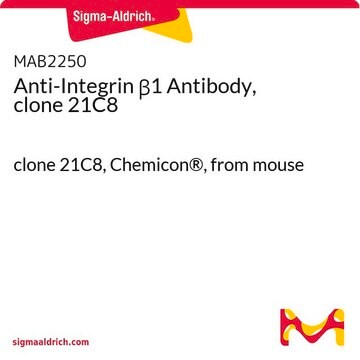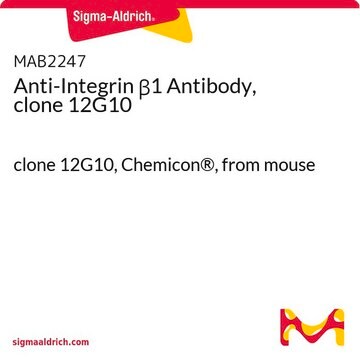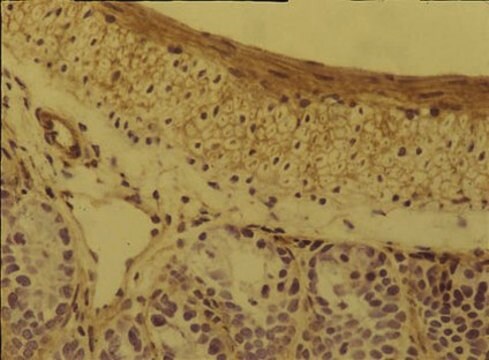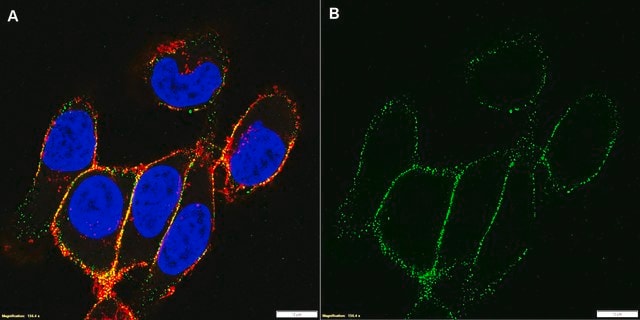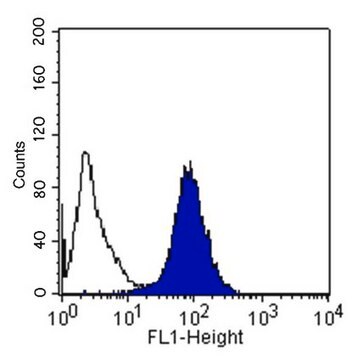AB1952P
Anti-Integrin beta 1 (CD29) Antibody
CHEMICON®, rabbit polyclonal
Sinonimo/i:
CD29
Scegli un formato
610,00 €
Spedizione prevista il21 febbraio 2025Dettagli
Scegli un formato
About This Item
610,00 €
Spedizione prevista il21 febbraio 2025Dettagli
Prodotti consigliati
Nome del prodotto
Anti-Integrin β1 Antibody, cytosolic, Chemicon®, from rabbit
Origine biologica
rabbit
Livello qualitativo
Forma dell’anticorpo
purified immunoglobulin
Tipo di anticorpo
primary antibodies
Clone
polyclonal
Reattività contro le specie
human, rat, pig, mouse
Produttore/marchio commerciale
Chemicon®
tecniche
immunoprecipitation (IP): suitable
western blot: suitable
N° accesso UniProt
Condizioni di spedizione
wet ice
modifica post-traduzionali bersaglio
unmodified
Informazioni sul gene
human ... ITGB1(3688)
Specificità
Immunogeno
Applicazioni
Immunoprecipitation
Optimal working dilutions must be determined by the end user.
Descrizione del bersaglio
Stato fisico
Risultati analitici
U251 cell line Skin (Basement Membrane)
Note legali
Non trovi il prodotto giusto?
Prova il nostro Motore di ricerca dei prodotti.
Raccomandato
Codice della classe di stoccaggio
10 - Combustible liquids
Classe di pericolosità dell'acqua (WGK)
WGK 2
Punto d’infiammabilità (°F)
Not applicable
Punto d’infiammabilità (°C)
Not applicable
Certificati d'analisi (COA)
Cerca il Certificati d'analisi (COA) digitando il numero di lotto/batch corrispondente. I numeri di lotto o di batch sono stampati sull'etichetta dei prodotti dopo la parola ‘Lotto’ o ‘Batch’.
Possiedi già questo prodotto?
I documenti relativi ai prodotti acquistati recentemente sono disponibili nell’Archivio dei documenti.
Filtri attivi
Il team dei nostri ricercatori vanta grande esperienza in tutte le aree della ricerca quali Life Science, scienza dei materiali, sintesi chimica, cromatografia, discipline analitiche, ecc..
Contatta l'Assistenza Tecnica.
